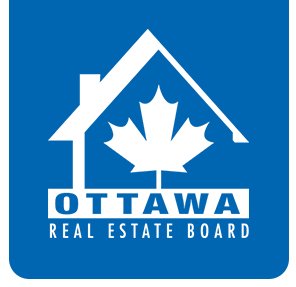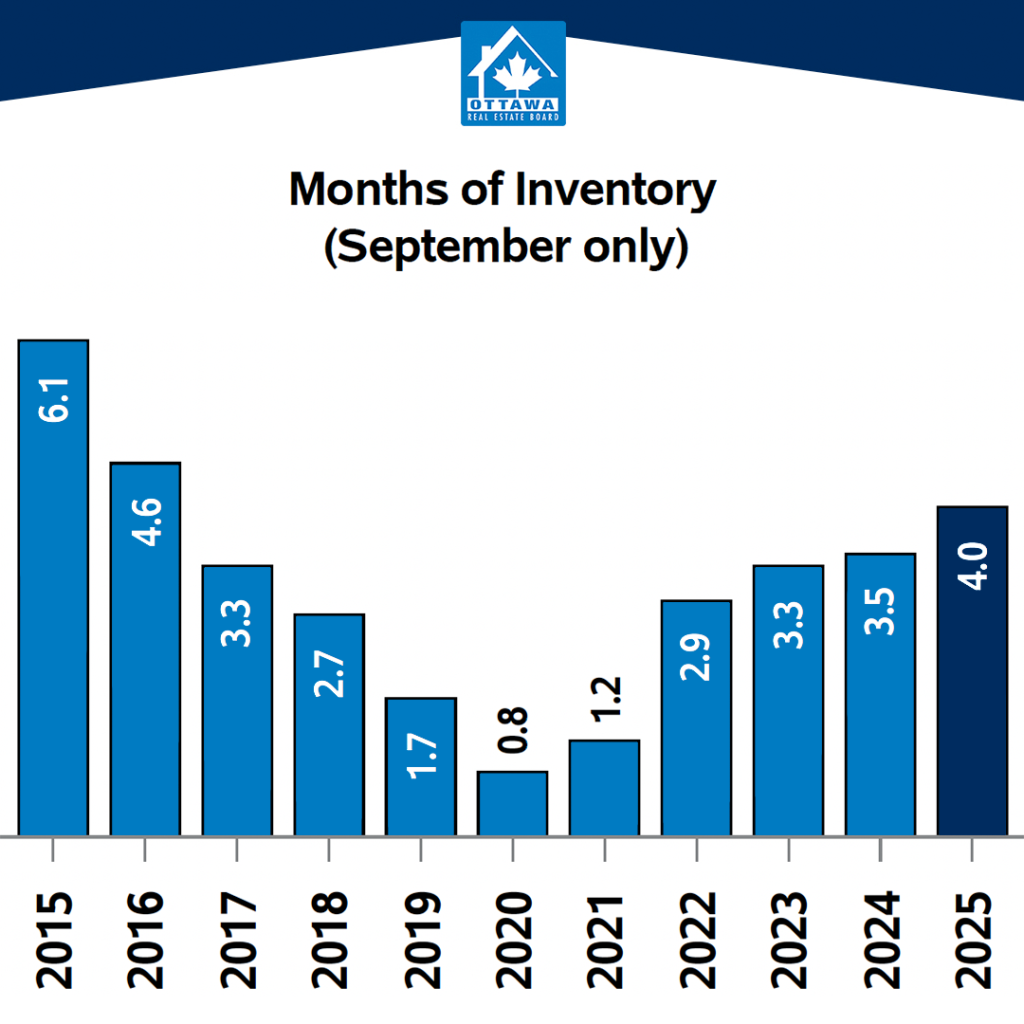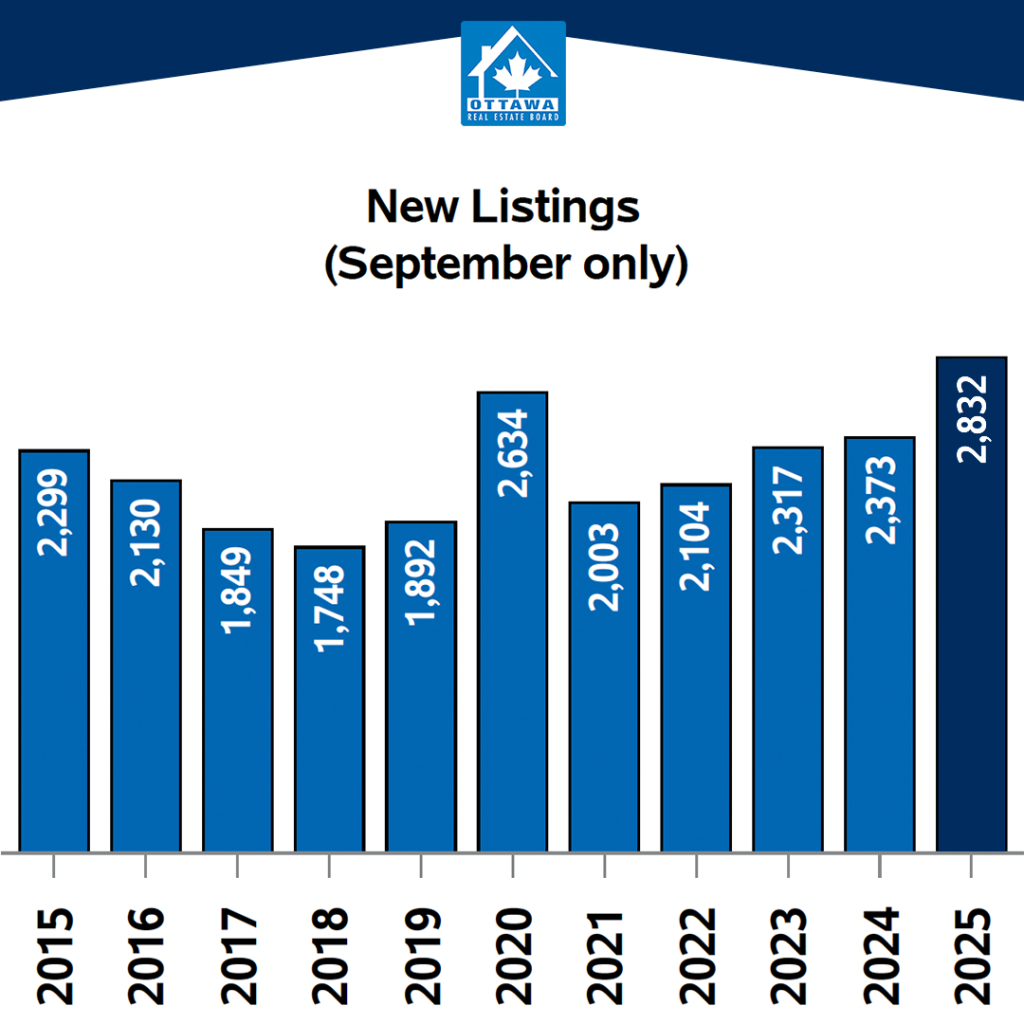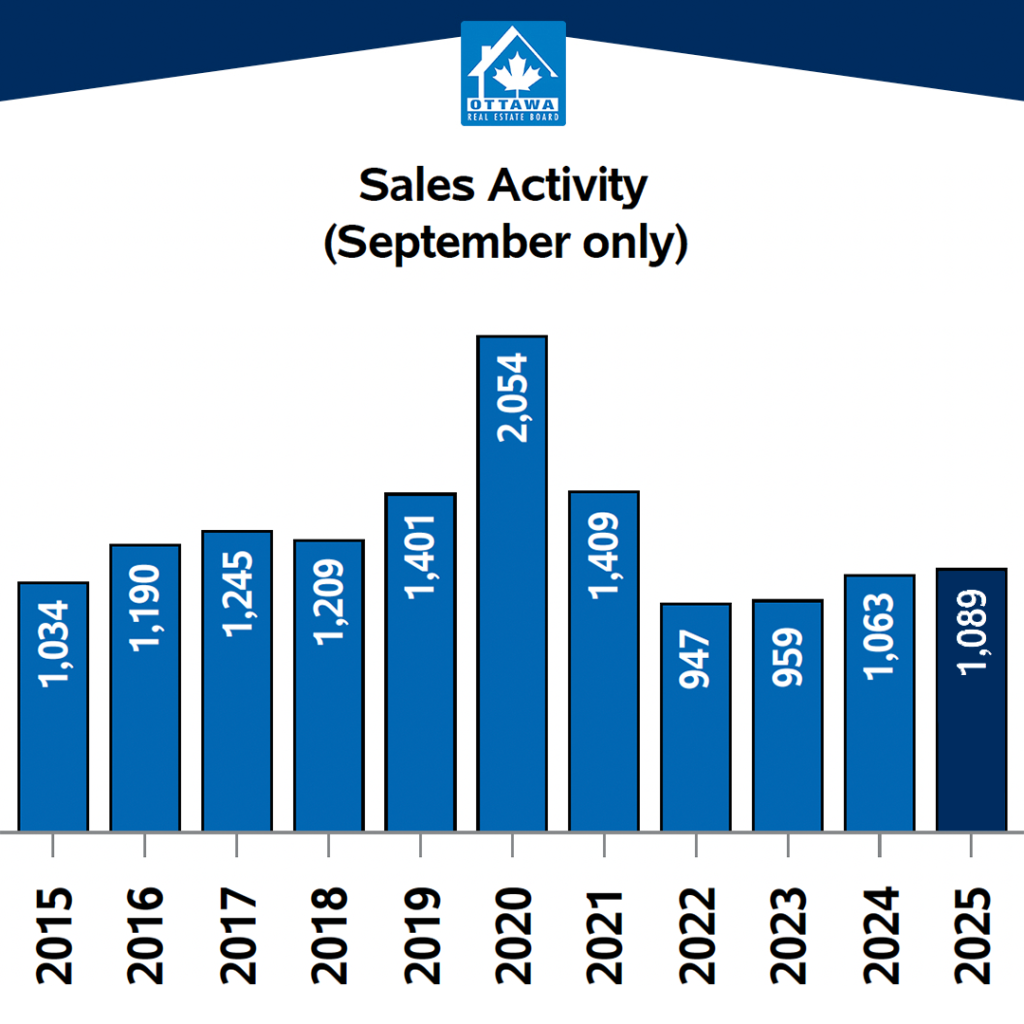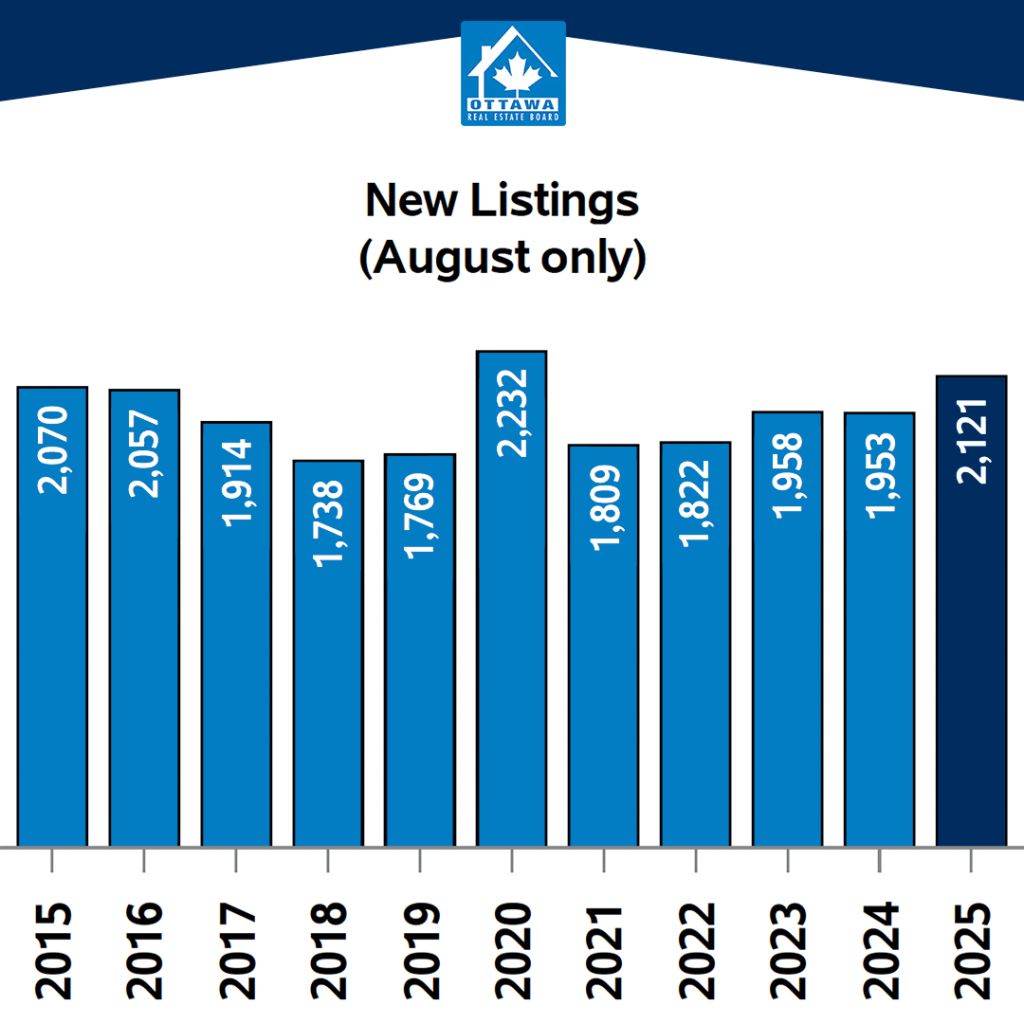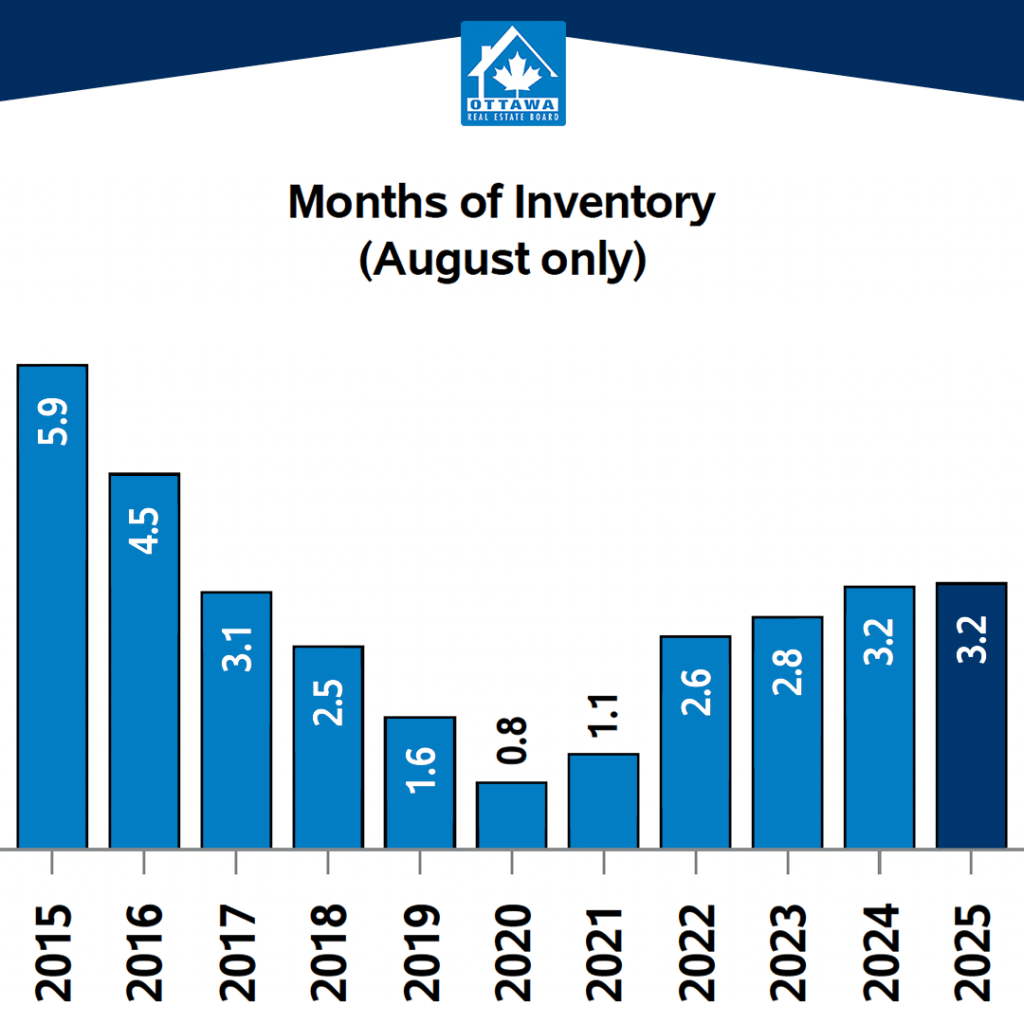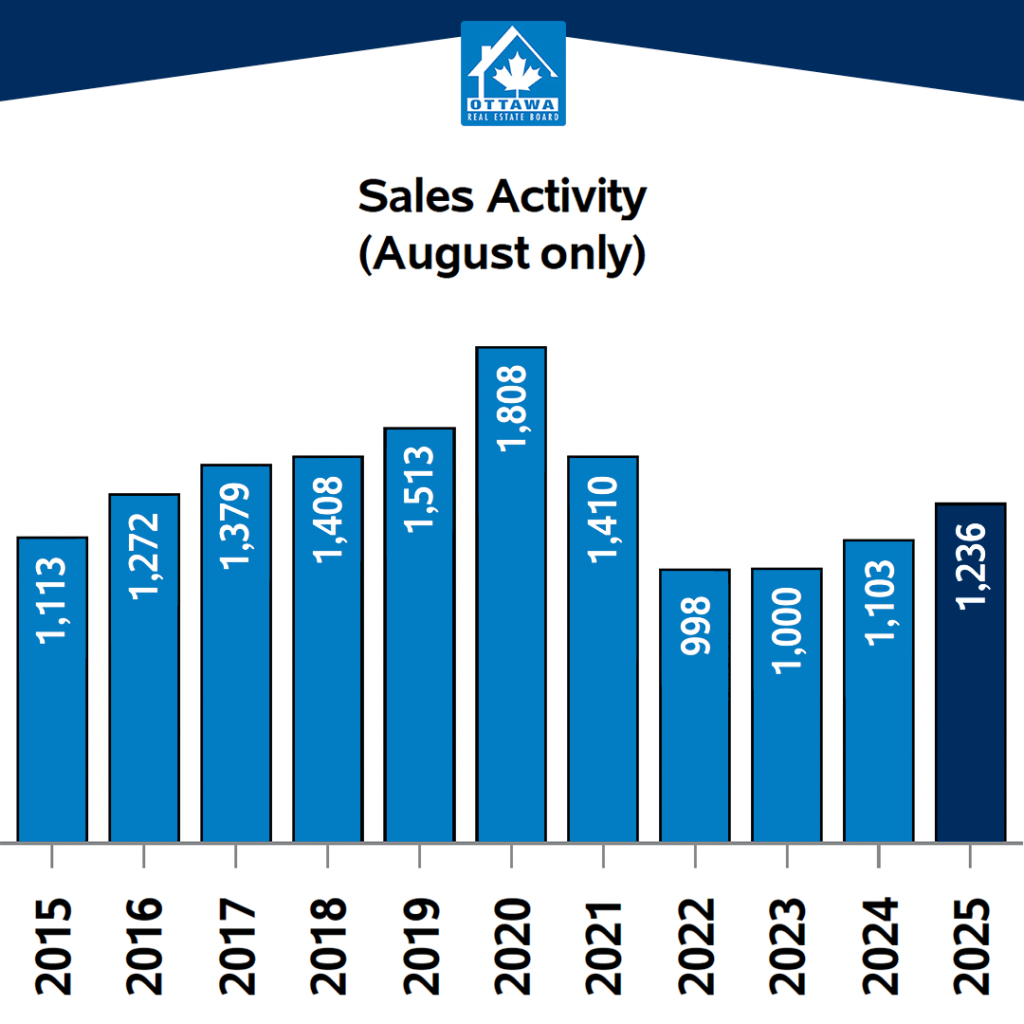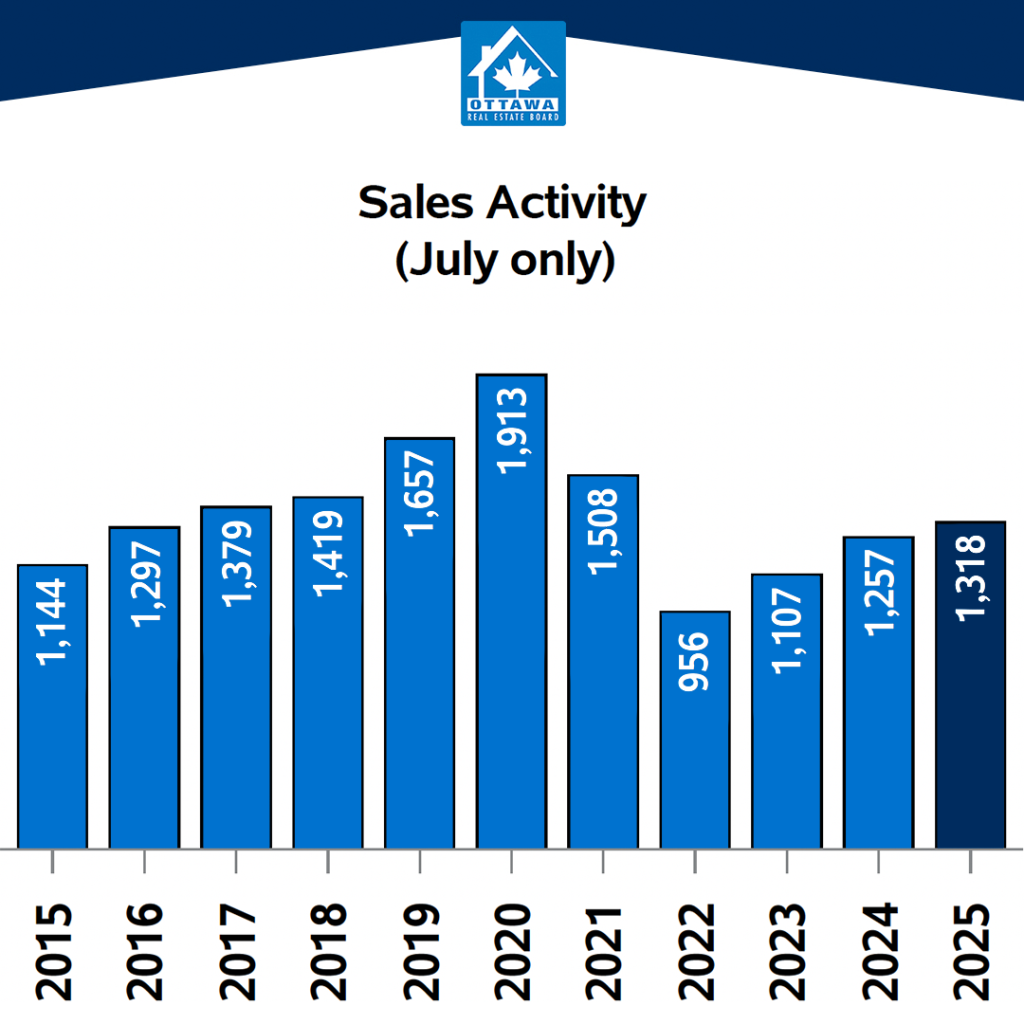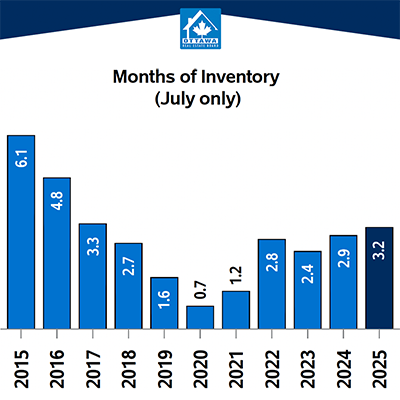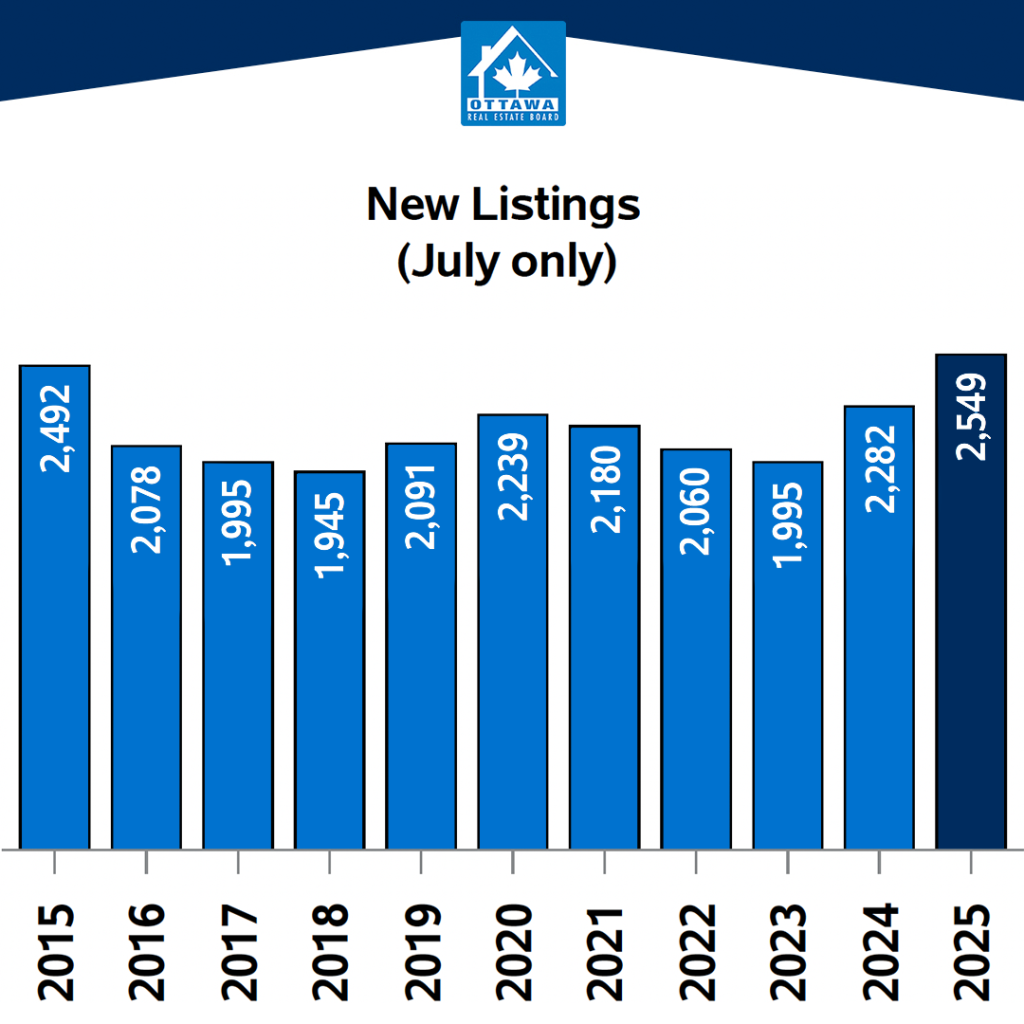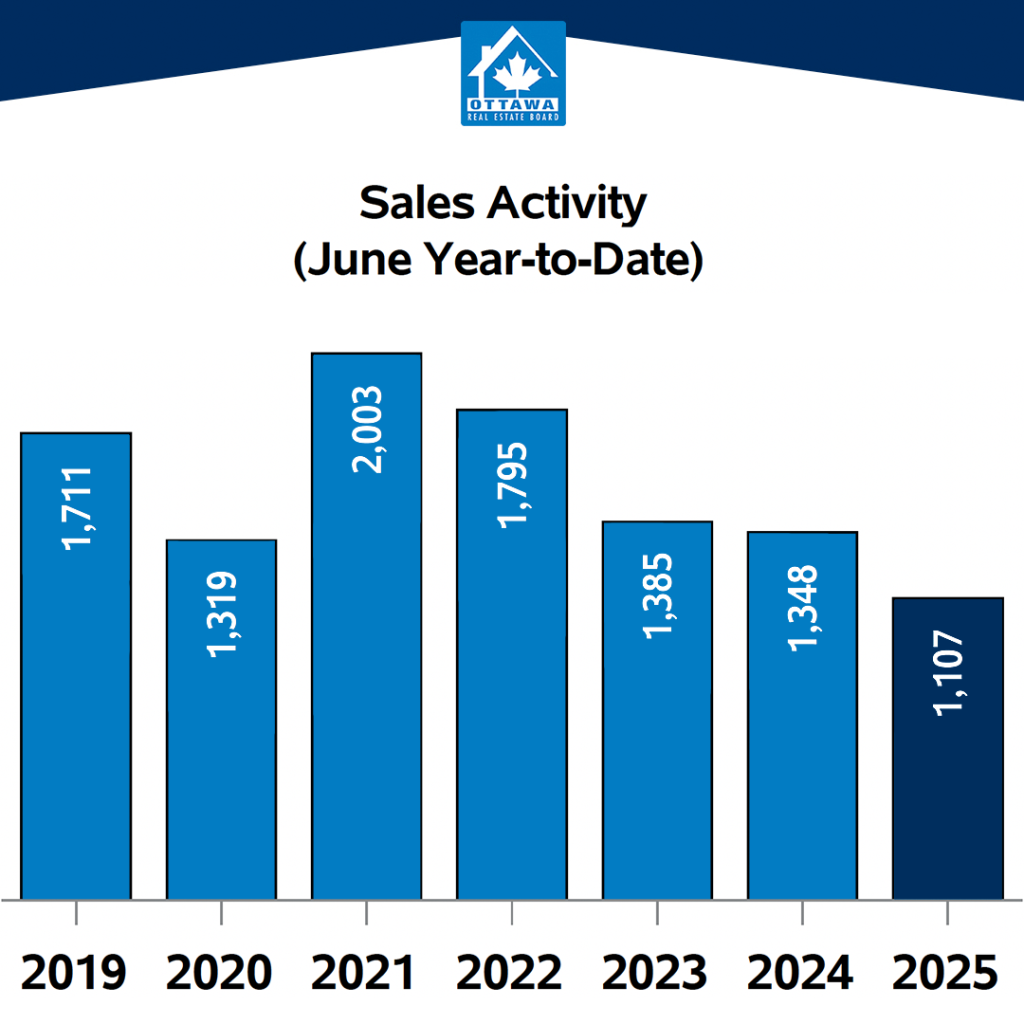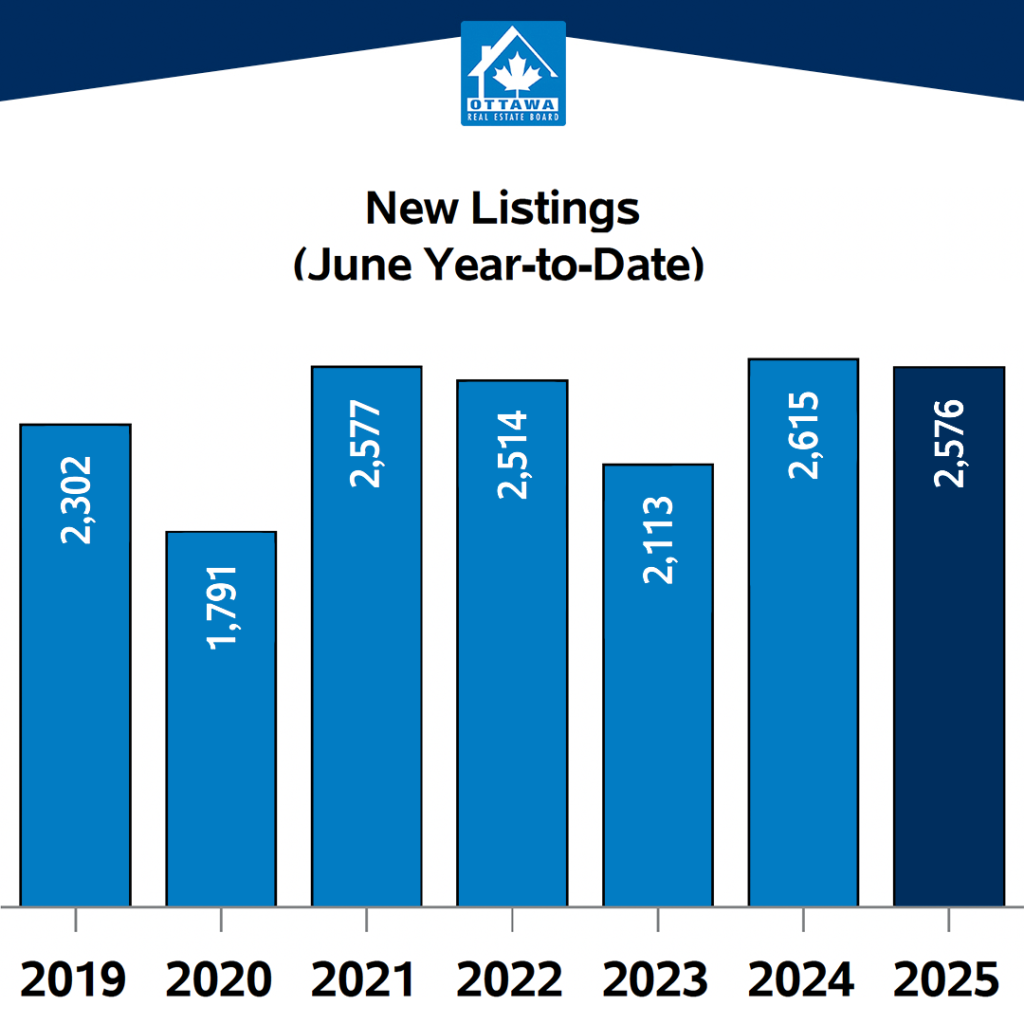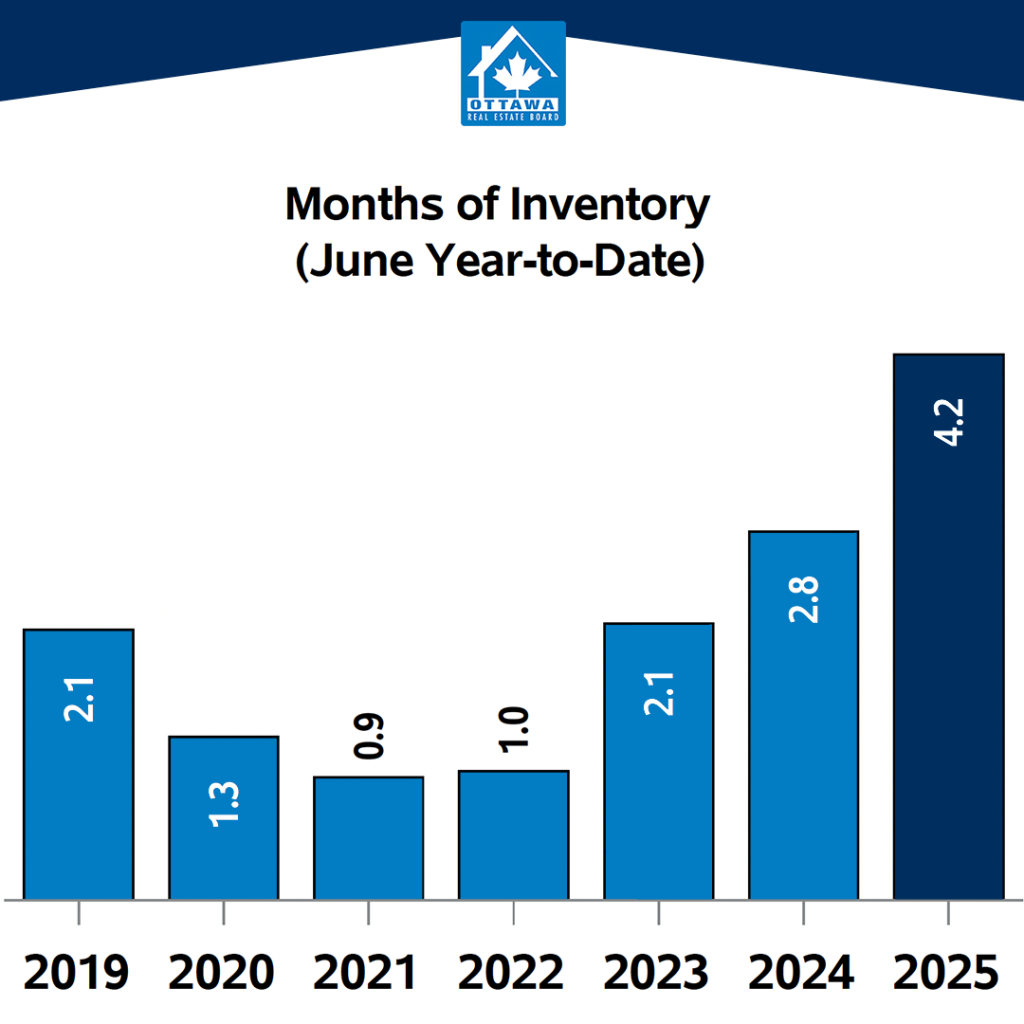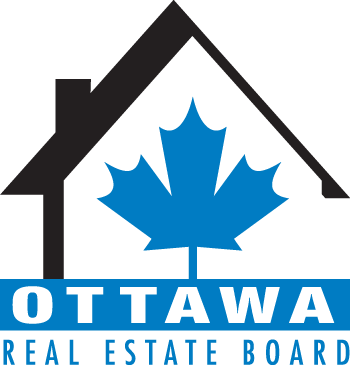OTTAWA, ON — A new survey conducted by Abacus Data for the Ottawa Real Estate Board (OREB) reveals widespread concern about housing affordability and supply in the nation’s capital. Nearly two-thirds of residents (62%) say they are concerned about losing their home or rental unit if their financial situation were to suddenly change, while four in five (82%) are concerned about the overall state of housing in Ottawa today.
The survey, which polled 1,000 Ottawa residents in September 2025, paints a picture of a city struggling with the rising cost of living, a lack of affordable housing options, and a strong desire to see governments make the dream of home ownership in Ottawa a reality.
“When six in ten residents worry about losing their home if their financial situation changes, it’s a clear sign that we must do more to improve housing affordability and choice,” said Paul Czan, 2025 President of OREB. “We must make it easier to build more homes that families need and can afford.”
When asked which issues they most want elected officials to focus on, respondents identified cost of living (47%), housing affordability (44%), and homelessness (29%) as the most important priorities. Two-thirds of residents (67%) describe housing in their area as unaffordable, yet 71% of non-homeowners still hope to buy a home someday. While the dream of home ownership is strong among Ottawa residents, half of all respondents doubt they’ll ever be able to afford a home in their community of choice.
“Ottawa residents are telling us that what they need are more affordable housing options—especially missing middle housing like duplexes, triplexes, townhouses, and small apartment buildings that seniors, families and young people can afford,” said Nicole Christy, CEO of OREB. “The good news is that there’s broad public support for action on things like lowering development costs, modernizing zoning and reducing red tape.”
Residents see clear causes behind the affordability crunch, with most pointing to a lack of affordable housing for low and middle-income families (54%) and the high cost of construction (43%), including materials and labour—underscoring that Ottawa’s affordability challenge is contributing to limited housing supply.
Elected leaders at all three levels of government get poor marks from respondents on improving Ottawa’s housing situation. Three in five residents (59%) say they are dissatisfied with the leadership shown by the federal, provincial, and municipal governments alike on housing issues. Only 36% of respondents believe the City of Ottawa is making housing affordability a high or very high priority.
As a leading advocate for more attainable housing in the City of Ottawa, OREB is meeting this week with City Councillors to advance policy solutions that will help get more affordable homes built faster in the city. Specifically, OREB has a three-point policy plan that is asking the City to:
-
Reform Development Charges to Lower Costs: OREB is calling on City Council to reduce and reform development charges that are driving up the cost of new homes and rentals. Ottawa’s fees have increased four times in the past year, adding as much as $63,000 to a new low-rise home.
“Ottawa can’t build its way out of the housing crisis if every new home buyer must pay tens of thousands of dollars in government fees,” said Czan. “Development charges are adding up to $63,000 to the cost of a single unit which is leading to fewer homes and higher prices. Council has the tools to fix that.”
-
Pass a Bold Zoning By-Law That Enables More Housing Choices: OREB supports a new citywide zoning by-law that permits up to four residential units on serviced lots, removes outdated parking minimums, and speeds up approvals. Public opinion is firmly behind this approach with 80% supporting the creation of more affordable homes across Ottawa.
“This is about unlocking opportunity,” said Christy. “By legalizing more housing types in every neighbourhood, Ottawa can make meaningful progress toward affordability, inclusion, and the kind of city our residents are asking for.”
-
Protect Tenants While Expanding Rental Supply: OREB believes Ottawa can protect tenants and increase rental choices without adding unnecessary red tape through a new rental renovation licensing by-law. The public agrees, with 80% of residents saying they support fixing the Landlord and Tenant Board, 79% supporting tougher action against bad landlords, and 68% supporting expanding rental housing through incentives.
“Ottawa renters need protection, not more paperwork,” said Czan. “Most residents support fixing the Landlord and Tenant Board and cracking down on bad landlords, but they don’t want new red tape that drives small landlords out of the market.”
About the Survey
The Ottawa Real Estate Board–Abacus Data State of Housing Survey was conducted from September 18 to 30, 2025, among 1,000 residents of the City of Ottawa. Results are accurate within ±2.77%, 19 times out of 20.
About the Ottawa Real Estate Board (OREB)
The Ottawa Real Estate Board (OREB) is a non-profit association representing more than 4,000 member REALTORS® in the National Capital Region. OREB advocates for policies that promote housing affordability, protect consumers, and support a fair and efficient real estate marketplace.
For media inquiries, please contact:
Dave Holmes, Manager, Marketing and Communications
613-225-2240 ext. 232 | dave@oreb.ca

